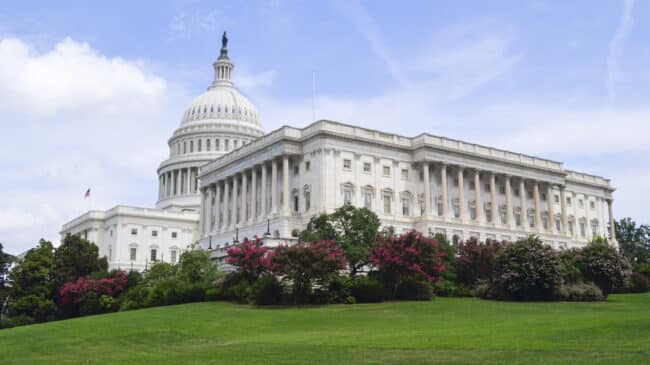Before the Centers for Disease Control and Prevention (CDC) came under criticism for its confusing and often contradictory messaging on COVID-19, the agency was responsible for a different public health communications failure, this one about vaping.
In the summer and fall of 2019, there was a spate of 2,739 lung injuries and 68 deaths related to vaping. The outbreak was a surprise. Nicotine vaping products had been available on the U.S. market since 2007 and in large parts of the world, yet no similar incidents had been recorded. Patients suffering from these injuries were mostly in their late teens and twenties and reported vaping illicit cannabis oils. State health departments quickly found a recurring ingredient in the cannabis oils they were testing, vitamin E acetate.
Vitamin E acetate, a thickening agent, was being used by black-market cannabis sellers to dilute their products and extend their supply. Vitamin E acetate was not found in any legally sold nicotine e-cigarettes. But as more cases emerged, the CDC’s warnings didn’t distinguish between the dangers of illicit marijuana products and legally purchased nicotine vapes.
The CDC labeled the condition e-cigarette, or vaping, product use-associated lung injury, or EVALI. Marijuana vaping products are not referred to as e-cigarettes, a term used to describe the nicotine vaping devices many smokers use to quit cigarettes. A media frenzy surrounded the outbreak that reflected the lack of clarity from the CDC. Popular e-cigarette brands were shown in television news segments about sick or dying patients even though these brands did not produce e-cigarettes containing cannabis oils.
In September 2019, the CDC compounded its error by advising all Americans to refrain from vaping entirely, regardless of whether the product was nicotine or illicit cannabis oil. The problem with such overly broad guidance was that millions of Americans were using e-cigarettes to quit smoking or contemplating switching from smoking cigarettes to vaping nicotine. It took five months for the CDC to relent and drop its all-encompassing anti-vaping guidance in January 2020. But most of the public still blamed e-cigarettes for the EVALI outbreak rather than tainted cannabis oils.
Michael Pesko, one of the world’s most preeminent researchers on e-cigarettes, recently urged the House Energy and Commerce Committee to hold CDC accountable for the confusion. Pesko, associate professor of economics at Georgia State University, points to a petition of 75 scientists asking the CDC to rename EVALI. He co-authored an editorial in the journal Addiction, arguing public health officials need to correct the misinformation surrounding e-cigarettes. The CDC has, so far, refused to do so.
The CDC’s EVALI response also compares poorly to that of Public Health England, which has since split into the United Kingdom Health Security Agency (dealing with pandemics) and the Office for Health Improvement and Disparities (dealing with things like vaping). In Oct. 2019, Public Health England informed the British public that the lung injuries in the United States resulted from illegal cannabis products, and their advice on e-cigarettes remained unchanged—while not risk-free, e-cigarettes are far less harmful than smoking.
A Cornell University study published in 2022 tried to quantify the public health damage done by the EVALI episode. Using a population health model, the report found:
“From our estimated e-cigarette demand models, we conclude that the information shock reduced e-cigarette demand by about 30 percent. We also estimate that the information shock decreased the use of e-cigarettes for smoking cessation, again by about 30 percent. Over time, the reduced smoking cessation due to the information shock will in turn increase smoking-related illness and death.”
The researchers estimated that 450,000 life years will be lost as a result of fewer smokers switching to e-cigarettes due to the information shock surrounding EVALI.
Chairman of the House Oversight and Accountability Committee Rep. James Comer (R-KY) recently informed the Food and Drug Administration (FDA) that his committee would investigate the agency’s bungling of tobacco regulations. “FDA must also clearly and accurately communicate information regarding the relative risk that products, to include ENDS and smokeless products, pose—and do not pose—to the adult nicotine product user population,” Comer wrote.
To correct the widespread misperceptions of nicotine vaping and ensure public health agencies don’t repeat past errors, Comer should extend his committee’s oversight to the CDC’s role in the EVALI crisis.
Without congressional oversight, there’s little chance the CDC will be held to account for its EVALI and vaping mistakes. If there’s no accountability, the agency is more likely to mislead the public again and worsen public health outcomes.

